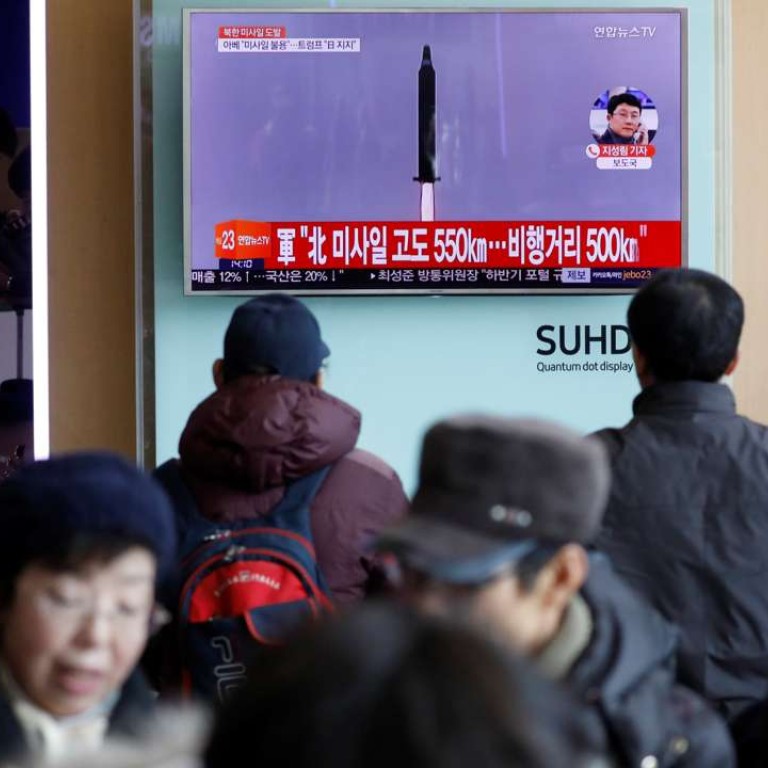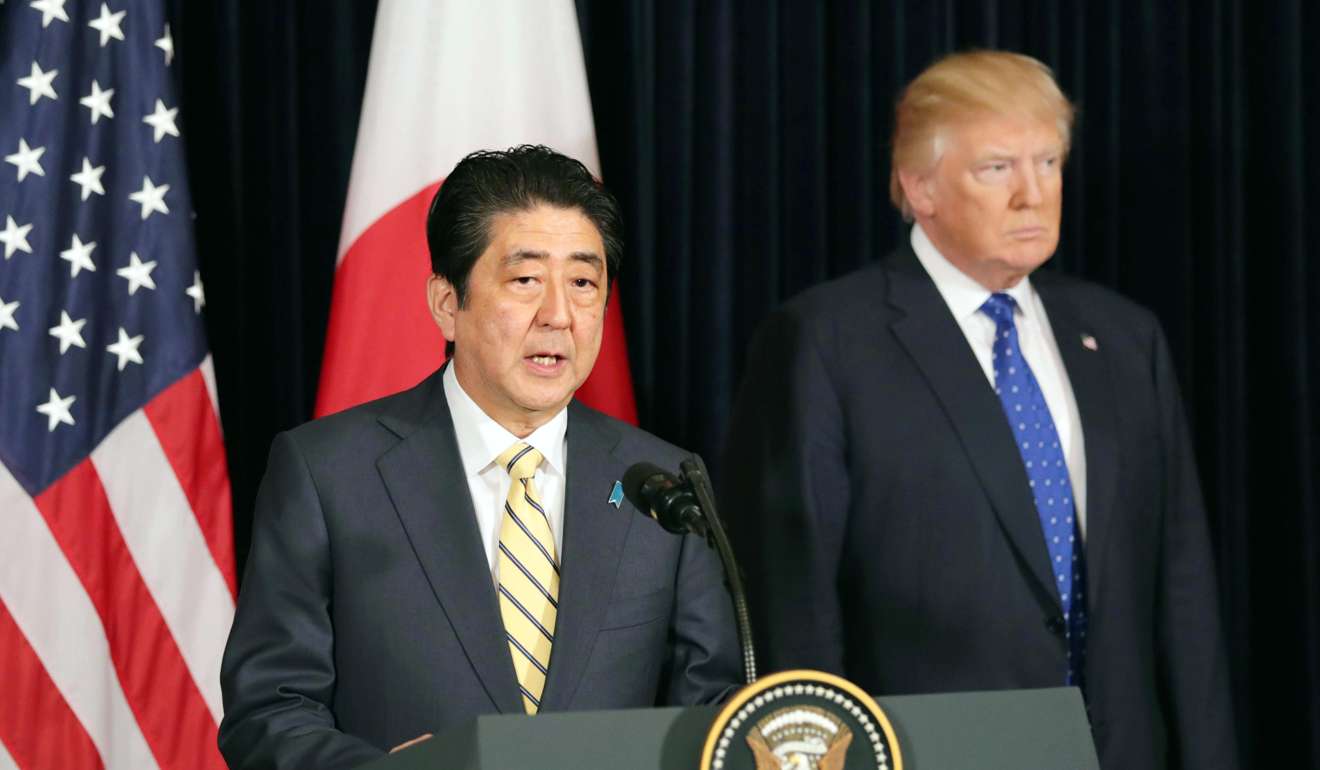
Heat is on China after North Korean missile test
Beijing will face pressure from the US and its allies to support additional sanctions, analysts say, after latest provocation by Pyongyang
Beijing may be more willing to support additional international sanctions against Pyongyang after North Korea launched a ballistic missile into the Sea of Japan on Sunday, analysts said, though they acknowledged what China could do was limited.
South Korea said the move by the North was a “show of force” designed to test US President Donald Trump, who responded by pledging “100 per cent” support for Washington’s key regional ally Japan.
Reuters cited an unnamed US official as saying the Trump administration was likely to increase pressure on China to rein in Pyongyang. Trump has previously said Beijing was not doing enough to keep its ally in check.
Relations have thawed in recent days after Trump reaffirmed Washington’s “one-China” policy in what he described as a “very warm” telephone conversation with President Xi Jinping.
There was no immediate comment on the missile launch from Beijing. But analysts said the move by the Kim Jong-un regime should not come as a surprise, and that Beijing had limited options in how to respond.
“The North Korea issue has long put China in an awkward situation,” Liang Yunxiang, an international affairs expert at Peking University, said. “It is in Beijing’s interest to see the survival of [the North Korean regime], yet Pyongyang pays no heed to China,” he said. “China has no viable solution except reiterating its call ... on all parties to exert self-restraint – but in reality no parties are willing to restrain themselves.”
Xu Liping, a researcher at the Chinese Academy of Social Sciences, said Pyongyang’s provocations had strengthened the US alliances with Japan and South Korea. Seoul has agreed to host the US military’s Terminal High Altitude Area Defence (THAAD) anti-missile system, which China views as a threat to its security.
“If North Korea is to continue such actions in the future, China will join the international community in sanctioning North Korea,” Xu said.
China had already come out in support of sanctions adopted by the United Nations following Pyongyang’s fifth nuclear test last year.
Cui Zhiying, a Korean affairs expert at Shanghai’s Tongji University, said accelerating the deployment of THAAD would worsen tensions between Beijing and Seoul. Beijing would likely remain committed to solving the North Korean nuclear issue through dialogue, he said.

Japanese Prime Minister Shinzo Abe, whose country is in range of the North’s missiles, called the test “absolutely intolerable” at an impromptu press conference with Trump in Florida.
The missile was launched at about 7.55am from Banghyon air base in the western province of North Pyongan, and flew east towards the Sea of Japan, the South’s defence ministry said. It flew about 500km before falling into the sea.
“Today’s missile launch ... is aimed at drawing global attention to the North by boasting its nuclear and missile capabilities,” the ministry said in a statement. “It is also believed that it was an armed provocation to test the response from the new US administration under President Trump.”
South Korea’s Joint Chiefs of Staff said the missile was “highly likely” to have been a medium-range Musudan missile. It was the first such test since October.
Trump, speaking alongside Abe, said Washington was committed to Japan’s security.
“I just want everybody to understand and fully know that the United States of America stands behind Japan, its great ally, 100 per cent,” he said.
Japan’s top government spokesman, Yoshihide Suge, said the test was “clearly a provocation to Japan and the region”.
South Korea’s acting president Hwang Gyo-ahn vowed a “corresponding punishment” in response to the launch.
In January, Kim boasted that Pyongyang was in the “final stages” of developing an intercontinental ballistic missile in an apparent attempt to pressure the incoming US president. Trump shot back on Twitter, saying: “It won’t happen.”
Additional reporting by Agence France-Presse and Reuters

